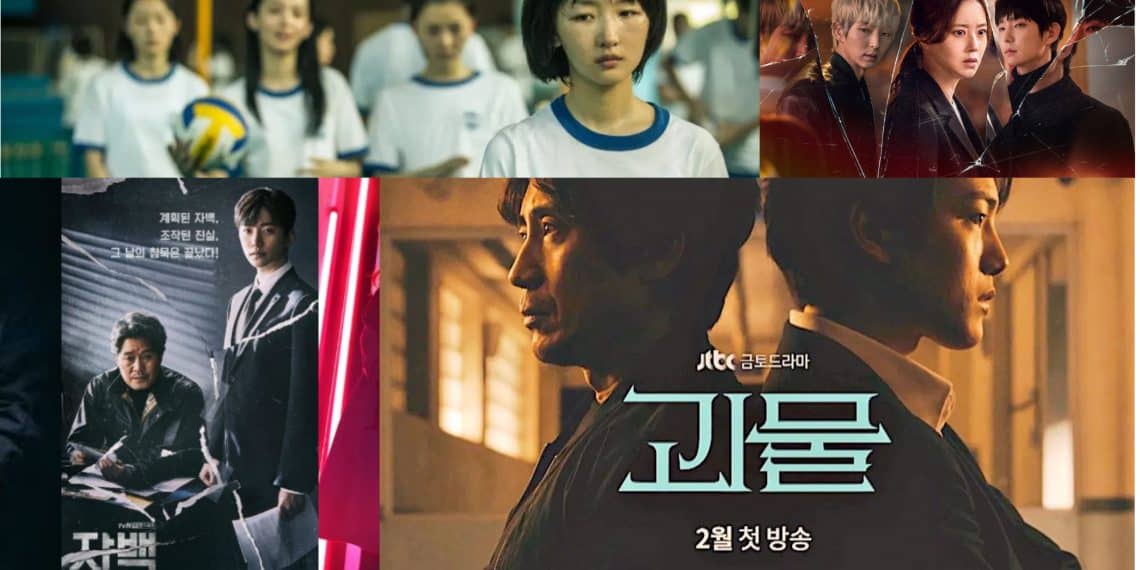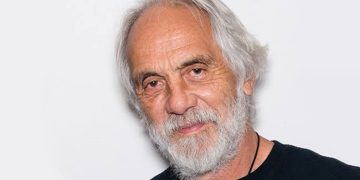Three brothers in their forties and a woman in her twenties face adversity together and find strength in one another in this dramatic account of their experiences. They support one another through the hardships of life by bonding in new ways and helping to mend old wounds.
Lee Sun Kyun’s character, Park Dong Hoon, is the middle brother and the most prosperous one in the family. As one would expect from a structural engineer, he is quiet and unflappable. They had a rocky start, but he grew to care for Ji An.
The lead characters, played by Parasite’s Lee Sun Gyun and IU’s Lee Ji-Eun, may be the show-stoppers, but the drama’s supporting cast is just as entertaining and important.
You end up rooting for the entire ragtag group since they’re all struggling and need each other to get through. Ji An and Dong Hoon, our protagonists, are both employed by a large engineering firm.
Dong Hoon is a well-known middle manager, whereas Ji An is a temp who survives on the coffee and food she earns via her temporary position. Despite the fact that they seem to be on opposite paths, destiny pulls them together to show them that first impressions aren’t always accurate.
1. My Liberation Notes (2022)
The show has a soothing, reflective vibe that stands out in a world where flashiness and volume seem to rule the day. One of my favorite things about having sibling friends is the underlying warmth shared between them.
Yum Mi Jung, played by Kim Ji Won, is the shy youngest sibling. It becomes clear that she is, in fact, a feisty and peculiar individual. She is sick of dating jerks and longs for a partner who would adore and cherish her without reservation. She longs for freedom from her mundane existence.
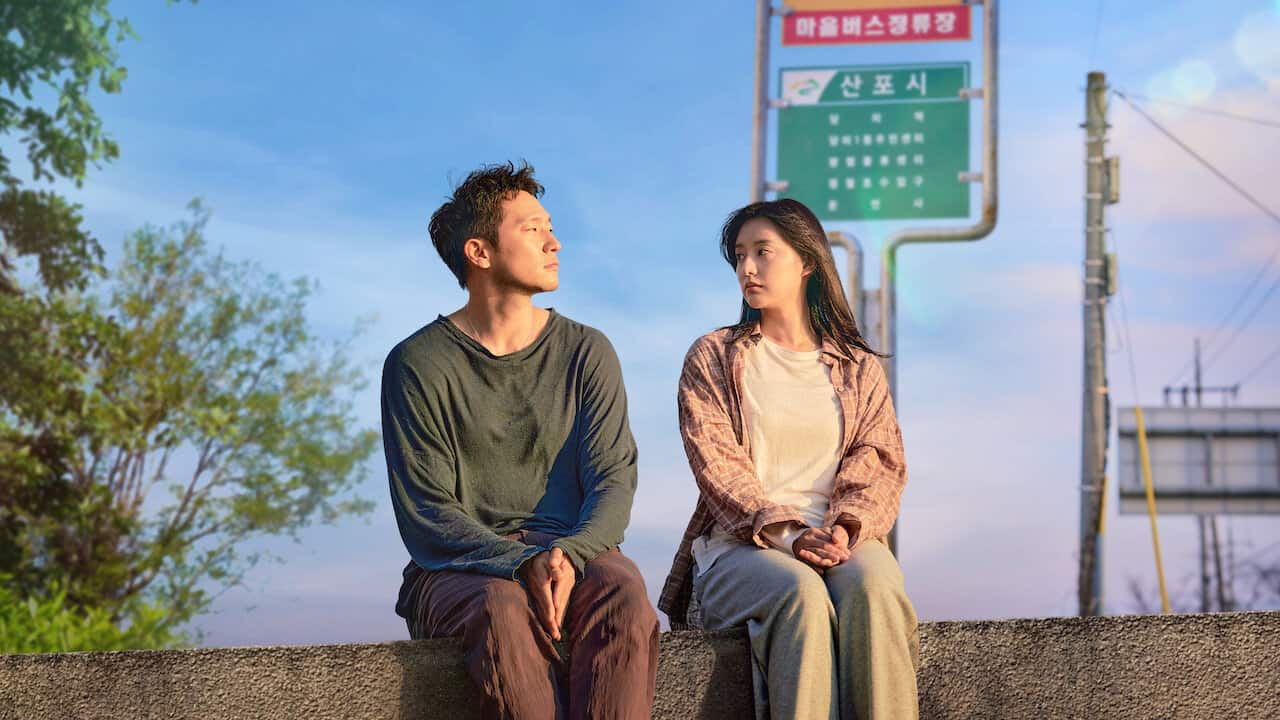
The third member of the family is the mysterious Mr. Goo, portrayed by Son Seok Gu. He is employed by the family of the three siblings. He is silent and lives on the property outside of their home.
After his gangster narrative began, I found viewers started losing a lot of interest in him. The drama also glosses over his alcoholism too much, in my opinion.
Goo and Mi Jung are at first complete strangers while sharing a residence; however, once Goo becomes engaged in Ki Jung’s personal dilemma, the two become closer to one another. Their offbeat exchanges are entertaining to listen to, and they let us see that our impressions of each of them were too narrow.
Kim Ji Won and Son Seok Gu have incredible chemistry. There’s a lot of philosophical musing from the characters, and it may become old. And there are more intellectual monologues and conversations than actual deeds, most of which are meaningless.
The destination we finally arrived at for our characters seemed unearned. When Goo returns to Seoul and his old habits and life, the drama loses its impact and becomes dull. The gangster storyline as a whole is poorly executed, making its goals and objectives murky at best.
2. Prison Playbook (2017)
Yoo Han-yang, a juvenile delinquent with a drug problem, is one of them. It’s all the more peculiar because Han-yang is gay. Although Han-yang holds Song Ji-won responsible for his being arrested, he aspires to dedicate the rest of his existence to her after he is freed from jail.
Prison Playbook does an excellent job of highlighting the nuances of the connection between Han-yang and his love interest rather than burying them. Han-yang and Ji-won begin to share the limelight more and more as the episodes go on, with Han-yang’s importance to the storyline increasing.
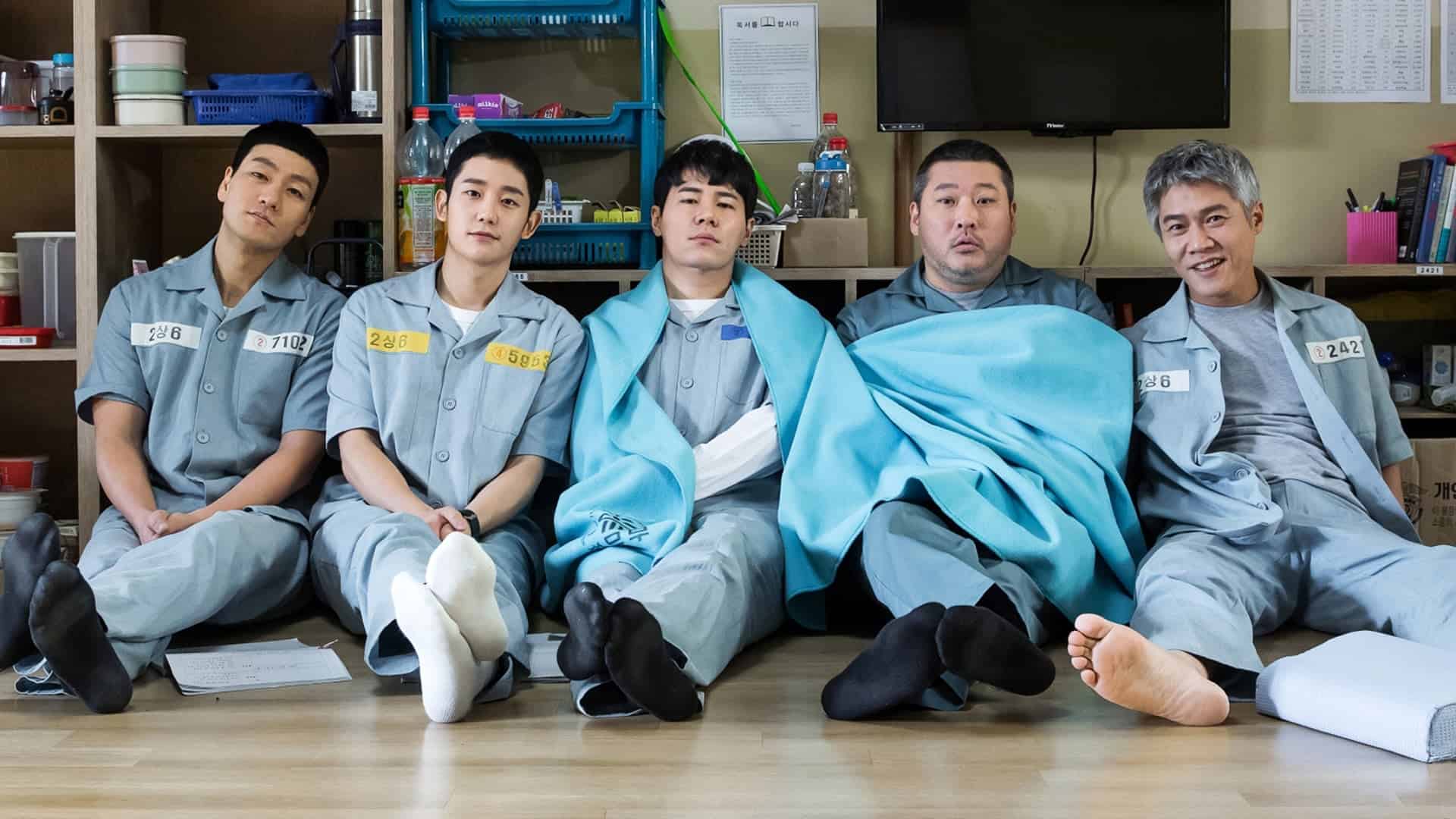
The drama’s creativity lies in its depiction of Han-yang’s tale, and that’s what blows my mind. There are a lot of moments of profound quiet between him and Ji-won after he arrives at Seobu Penitentiary.
Their encounters are awkward due to the glass that separates them, and they never make direct eye contact with one another. Ji-won would not even shake Han-yang’s hand while they were in the same room together.
Ji-won has problems believing Han-yang would entirely refrain from drugs despite his assurances. This lack of confidence has a chilling effect on their relationship. In one moment, Ji-won’s reflection seems to be seated across from Han-yang, and the two appear to be holding a discussion.
It’s as though those two things can’t share the screen at the same time. One interpretation of this plot point is that the drama is making a tentative effort to show a homosexual relationship or is trying to avoid offending the more conservative Korean viewers who could be watching.
Furthermore, the drama does not avoid showing the pair together. The beginnings of their romance are explored in one episode. The two were fast friends in middle school, but it wasn’t until they ran across common pals at a college reunion that they began dating.
3. Beyond Evil (2021)
This drama centers on a tiny Gyeonggi-do village where a serial killer is at work. Our two major characters are Han Joo-won, the son who will become the incoming police commissioner in Seoul, and Lee Dong-sik, an elderly cop who was demoted from his initial detective post.
Twenty years before the drama’s beginning, Lee Dong-sik was the prime suspect in the first serial crimes since he was the younger brother of one of the girls who was killed. Girls are disappearing once again, and it all seems to have started with Han Joo-won’s entrance.
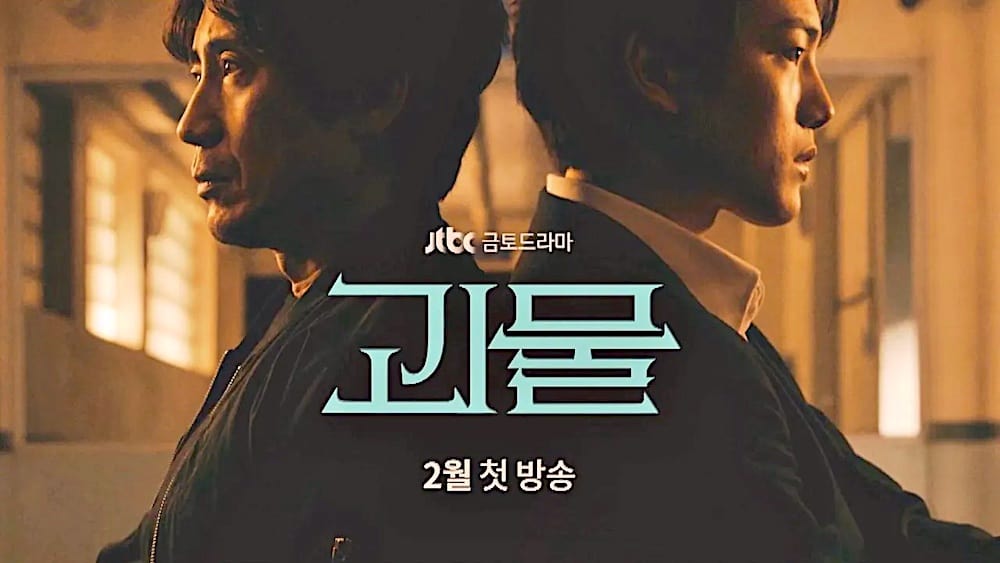
The plot is already complicated by the fact that each of our protagonists is struggling with significant inner and historical demons. When you first start watching this drama, you probably won’t like either of the main characters very much.
Shin Ha-Kyun is fantastic in roles where the protagonist seems unstable at first glance but turns out to be really nuanced and multifaceted. Our hero, portrayed by Yeo Jin-gu, first comes off as a snobby jerk, but as the story progresses and more information is disclosed, we realize that this isn’t entirely accurate.
When police arrive at the butcher shop, the proprietor hurls eggs and Joo-won at them. After that, the response is usually something like, “You may be an outsider, but you’ve riled up the people who remain confined here.” Joo-won, a wealthy foreigner and investigator with his own agenda, has further disrupted the peace and quiet of this peculiar little village.
The chemistry between Shin Ha-kyun and Yeo Jin-gu’s characters was superb, making for an outstanding performance. At first, it was clear that they were only putting up with one other because they were forced to be partners, but as the plot progressed and became more twisted, so did their relationship.
4. Flower of Evil (2020)
Baek Hee-Sung, Cha Ji-Won, and their daughter, who seem to have it all together at first look, are the protagonists of this drama. Hee-Sung works in the metal industry and is very much a family man.
But Hee-Sung’s closest friends and family have no idea that he’s really running away from a bloody and disgraceful history and hiding behind a false name.
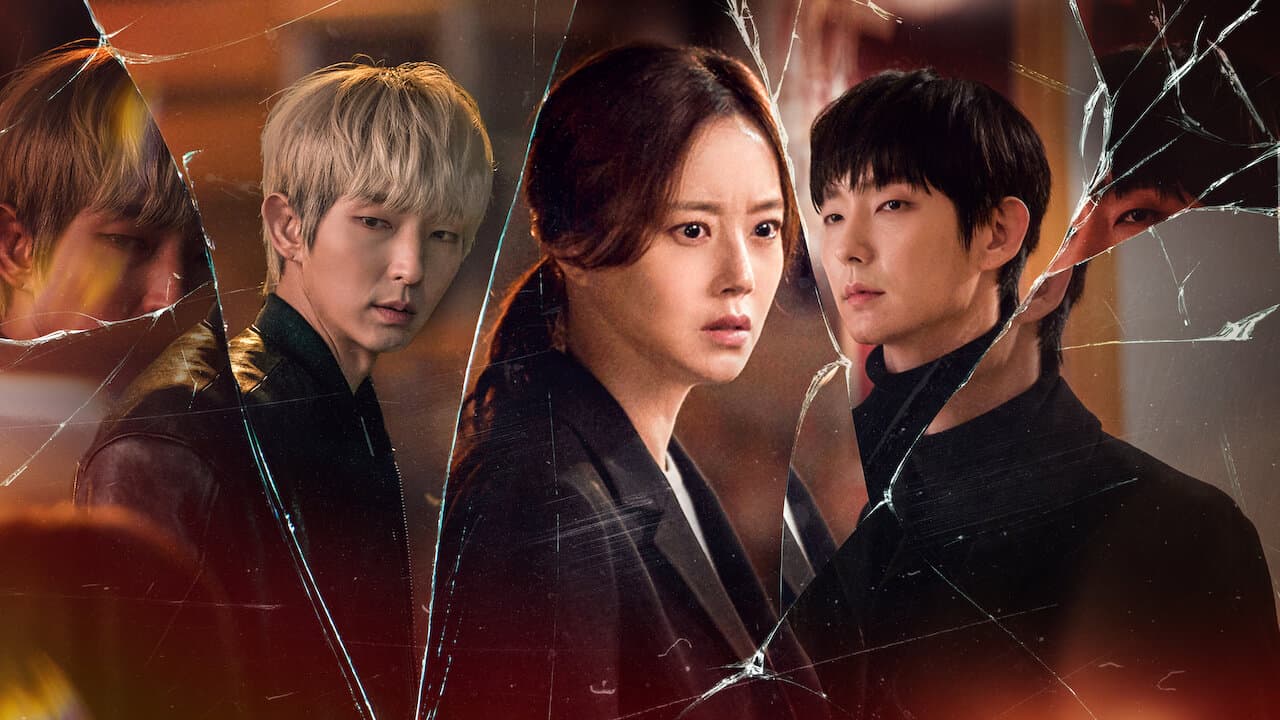
Ji-Won, on the other hand, is a detective who, despite her husband’s seeming devotion as a family man, begins to suspect that he is involved in a murderous spree. Ji-Won begins to doubt her understanding of Hee-Sung’s genuine identity as a result of her probing investigations into Hee-Sung’s past.
Later, she digs further to find out whether her husband or wife actually was married to a murderer. From psychopaths’ modest origins to their quest for self to the tenacity of compassion in the face of skepticism, Flower of Evil covers a lot of ground.
This show has all the elements you might want in a drama: romance, drama, twists, and even suspense. Baek Hee-Sung, a metalworker, is married to Cha Ji-Won, a police investigator investigating a series of murders.
Both guys have checkered histories. Baek Hee-Sung’s sister, Do Hae-Soo, and Kim Moo-Jin, a reporter with connections to all four major characters, round out the cast. You’ll like this show if you look for stories with strong female protagonists.
This drama features a strong and independent female lead who does it in an authentic way. Her resolve was ironclad; not even her fiery individualism could shake it. Moon Chae-Won did an outstanding job of capturing the character’s vulnerability. The character’s inner battle was shown with such nuance that it increased my respect for him.
5. Chocolate (2019)
The plot begins in ancient times in Wando, a city on the seashore. When young Lee Kang discovers Cha Young without any food or money, he decides to help her out.
As he watches her bawl over its deliciousness, he offers to make her some chocolate truffles and invites her over whenever she likes. When they get there, Cha Young’s mom gets into an argument with her dad and takes Cha Young and Wando away, leaving Kang anxiously waiting for the truffles.
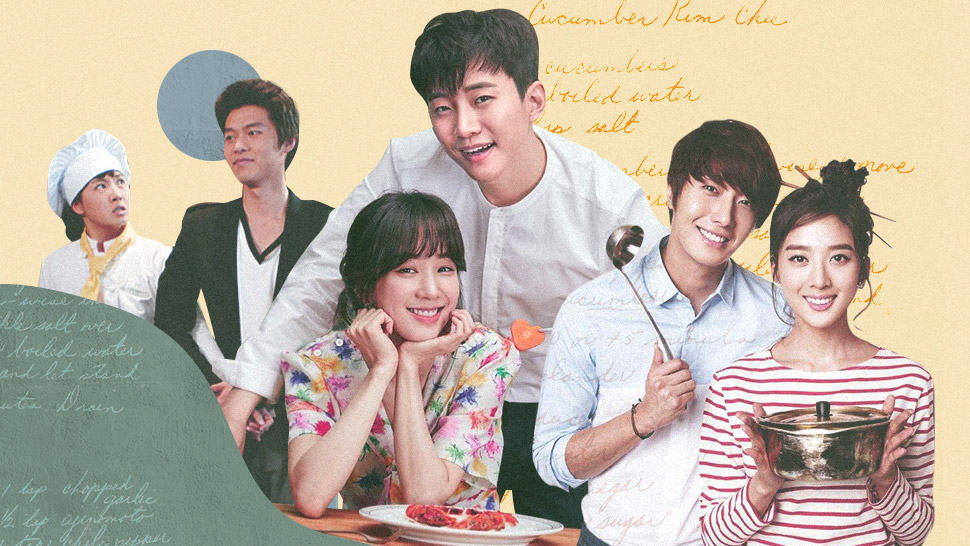
His grandmother on his father’s side, the Geosung group chairperson, comes there as he waits. For this reason, she has requested Kang’s presence in Seoul together with his mother.
His uncle and his son Jun are very angry over this, and as a result, Kang and Jun get into a fight and end up hurting one other. After much deliberation, Kang and his mom decide to take a trip to Seoul.
Meanwhile, Cha Young matures into a skilled cook. The drama’s theme is around Kang and Cha Young, who meet again after many years in a hospice. Their trials, sufferings, love, and the others that they encounter at the hospice are all part of the narrative.
The hospice is another visible and highly important location in this story. It’s not as sad and gloomy as it should be here. The insects, flowers, and vegetables growing everywhere around the facility, as well as the objects maintained for drying, do not give off any vibes of a clinical environment.
Even if the environment is important, the story’s protagonists and antagonists are what really drive the plot. Several of the people being treated and their loved ones are introduced to us during the course of the episodes.
We get attached to them throughout the course of the season, and we shed a lot of tears when they finally go. Get a box of Kleenex ready because you’re going to need them.
6. The Innocent Man (2012)
The most-watched Korean drama of 2012 stars Song Joong Ki as Kang Maru and Moon Chae Won as Seo Eun Gi. Kang Maru is the protagonist of Innocent Man.
Five years after his life became a tangled mess, he finally admitted that he was responsible for a murder he didn’t commit because of his everlasting love for his sweetheart and was expelled from medical school.
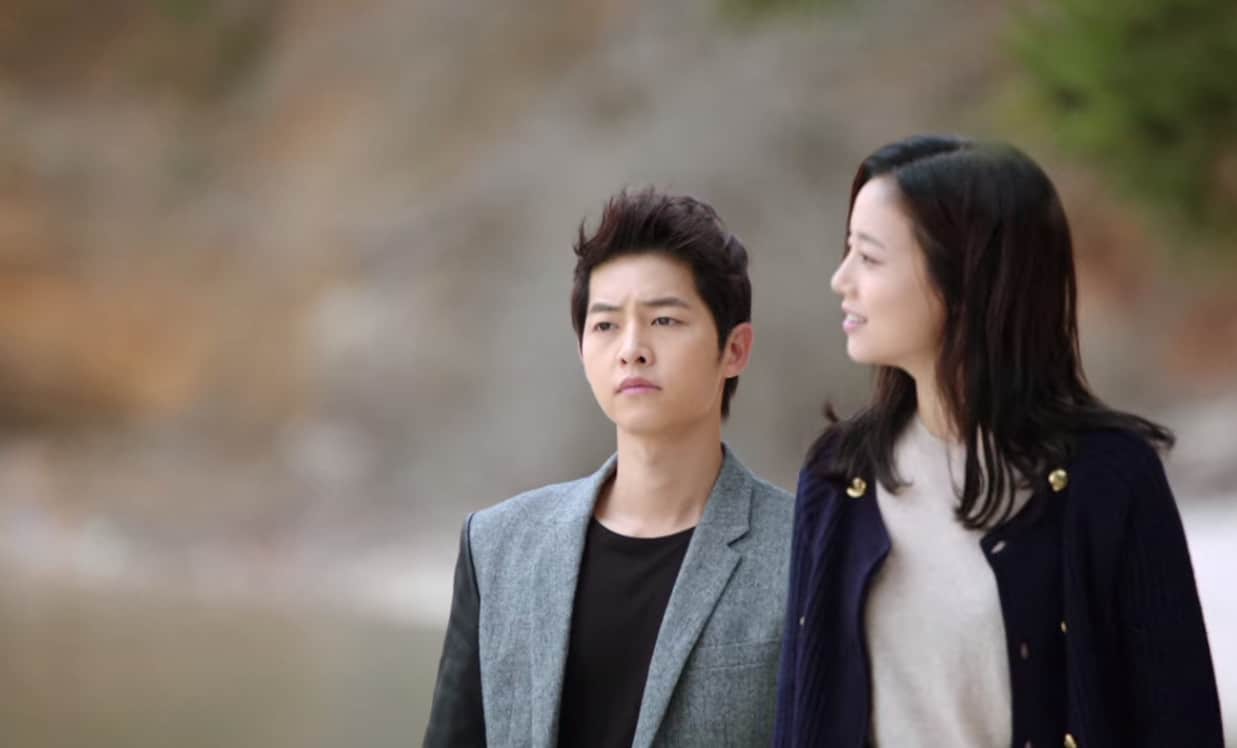
Then he bumped into his ex-girlfriend, who was happily married and well off. As an act of vengeance, he decided to seek Seo Eun Gi, his girlfriend’s stepdaughter. Because of this, their lives become more difficult.
There will be a total of 20 episodes of the show. That’s about the length of a whole season, which consists of 16 episodes. The storyline, however, seems unfinished despite the book’s length.
The story progressed well over its first third. The story seemed to move quickly in the second half. Some fundamental parts of the plot appear to be missing. The drama was nonetheless entertaining despite this and the lack of resolution.
A few months after the incident, both Maroo and Eungi, both suffering from memory loss, return to their jobs as corporate spies.
Maroo is simultaneously approached by Counselor Hyun Jungah and Lawyer Park Joonha, who are attempting to persuade him to help Eungi return to her Taesan home from Jaehee. Three of the film’s principal actors—Joong Ki, Si Yeon, and Chae Won—deliver outstanding performances.
It was a great joy to see Joong Ki portray a role so different from his previous ones, like the arrogant playboy in Sungkyunkwan Scandal or the good guy/bad boy Maru in The Innocent Man. Although Maru’s personality might be particularly annoying, Joong Ki does a wonderful job of capturing the numerous sides of each character.
7. Better Days (2019)
The series begins in 2011 with a powerful exposition of bullying at a Chinese school in a major metropolis. One bullied victim takes her own life by jumping. While most of his classmates are busy snapping photos on their phones, Chen Nian is the only one to rush forward and hide the corpse.
Three of her classmates were identified as bullies after a police inquiry. But now they’ve moved on to Chen, a smart but financially struggling student. Her mom is running from creditors or trying to make ends meet, so she isn’t home often.
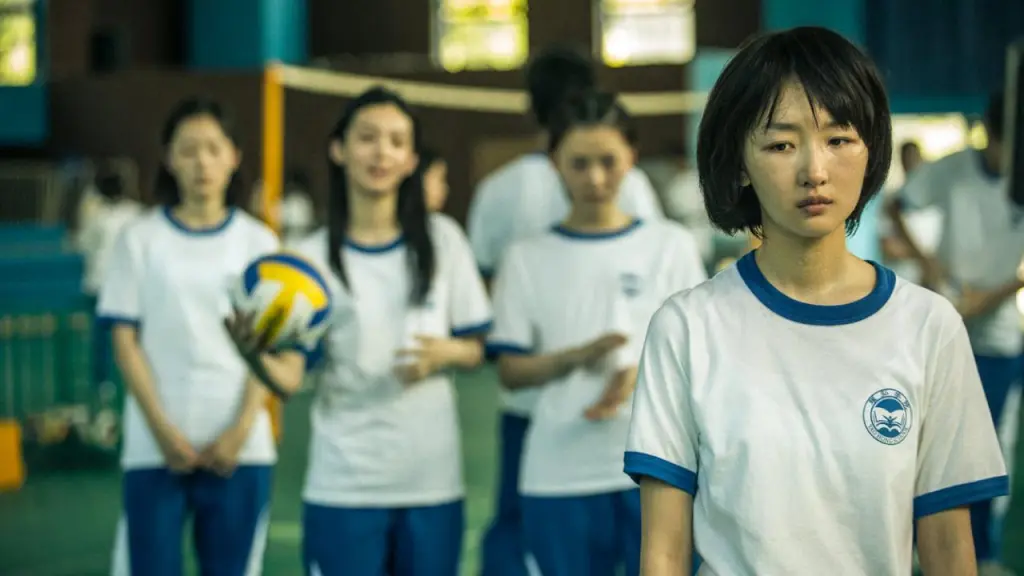
To get admission to a prestigious institution and get away from her present situation, Chen is preparing for the Gaokao. This first portion is amazing since it not only brings attention to bullying but also to larger societal problems in China.
The film depicts a nonchalant disregard for the plight of others. Particularly disturbing are the sequences in which the police interrogate the bullies, all of whom seem completely unconcerned about the fate of their victims. So far, the movie has presented a more accurate picture of the problems than the majority of the movies discussed on this site.
When Director Tsang and his writers have to decide between a believable story twist and an emotional scene, they always choose the latter. The film abandons societal critique and reality in favor of an unusual love romance between Chen and Liu.
Even though Chongqing, China, has the always-excellent Zhou Dongyu in the starring part, the cityscape is dreadful, with concrete flyovers rising above dilapidated 1970s buildings and gigantic new condominiums looming in the distance.
This might have been a fantastic picture, as seen by the prologue. Director Tsang, however, once again brings the worst of Hong Kong cinema to a mainland picture. The narrative contains several gaps, and the character-building is rushed for the sake of drama.
8. Move to Heaven (2021)
Together with his father, Geu Ru operates as a trauma cleaner. He has autism, yet he appears to know everyone’s innermost thoughts and feelings better than anybody else.
He may also put together the deceased person’s recollections and assist with last wishes. However, once his father passes away, he is placed under the temporary guardianship of his ex-convict uncle for a period of three months.
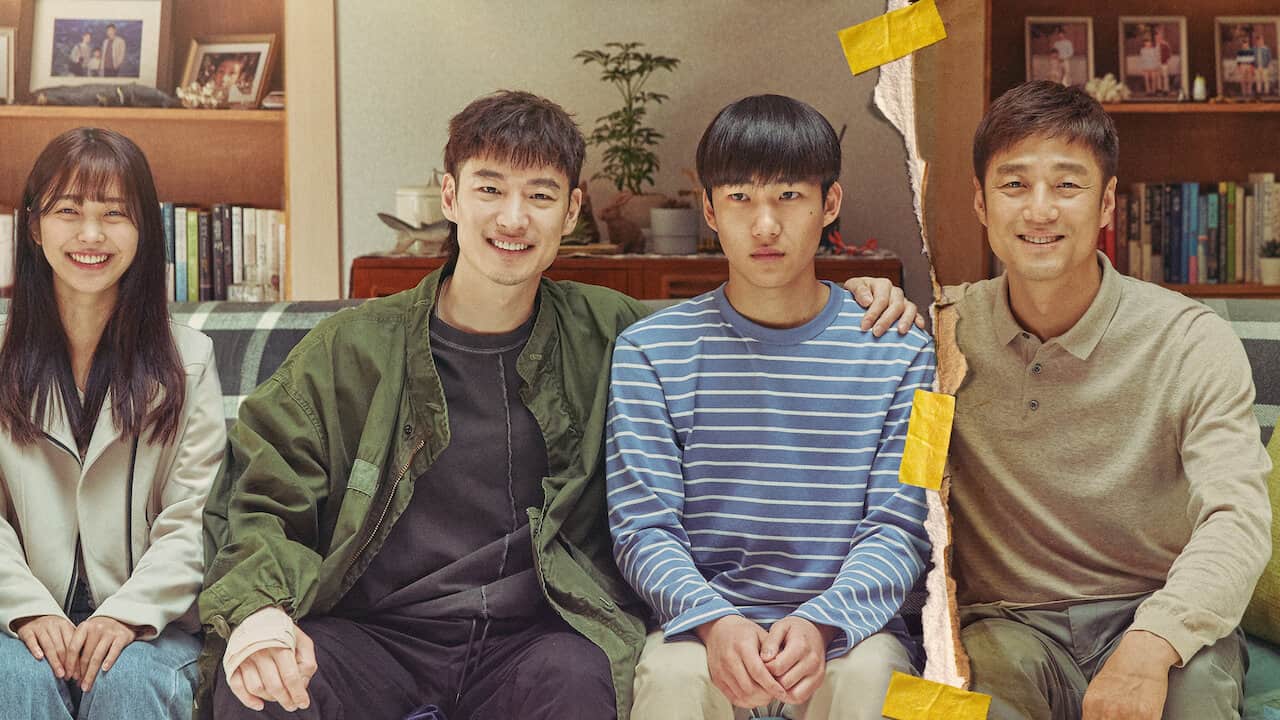
The drama succeeds in providing resolution because it handles tales of dying with respect and empathy. These tales were like little puzzles, revealing information about the person’s personality, values, and desires via the objects they left behind.
Furthermore, the family narrative approached the mood of these works by telling the terrible but moving tale of a family that had been torn apart but was slowly putting itself together once more and moving on.
The drama’s specialness, originality, and thought-provokingness stem from its lack of romance, superfluous drama, and unrealistic twists and its focus instead on the fine lines of a truly human narrative.
The supporting cast did a great job of enhancing the main cast’s performances without hogging the spotlight themselves. When Geu Ru’s father passes away, his world is turned upside down, and he must learn to live without him.
He also has to share a residence with his unresponsive, rule-breaking uncle, with whom he has a strained relationship. Geu Ru’s uncle Sang Gu. He hadn’t spoken to his brother in a long time, and he clearly still had some resentment towards him. A lot of the important people in his life have died because of the poor decisions he’s made.
9. Hot Stove League (2019)
Seung Soo is a very inexperienced coach who has previously worked with lower-level clubs. Inadequate funding was also cited as a reason for rejecting certain candidates.
Someone, however, must step up and take charge of the Dreams in order to make the necessary changes to the team, such as adding new players, reorganizing their equipment, and dealing with the persistent demands of the media.
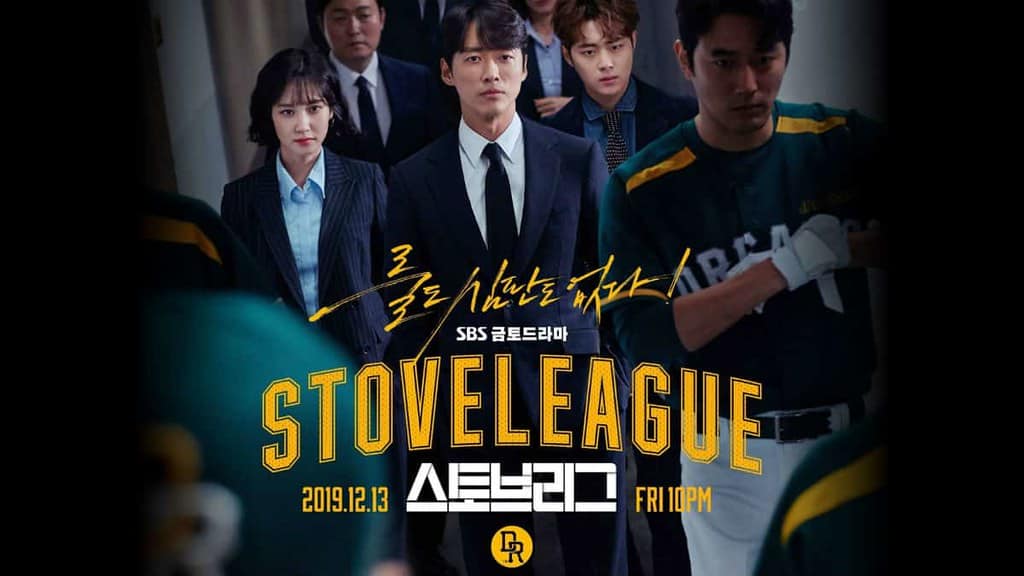
Disappointed with their team’s lackluster performance, Dreams supporters are being more vocal in their displeasure. Hence, the club’s management has issued Seung Soo an invitation to join the team.
There isn’t much baseball on display since the drama takes place over the offseason when the club is trying to rebuild before starting a new season.
As a result, the drama tends to center on business difficulties, wealthy people who don’t give a hoot about sports, dedicated Dreamers, and controversy-mongers looking to boost their profile.
Each episode of the drama focused on a different player, employee, TV personality, etc., whose narrative was told as the primary personality dealt with the many issues that arose and led the Dreams to victory.
Some sections of this Korean drama were really dull, however. Thankfully, the premise was maintained clean and businesslike, without any cheesy romantic subplots. Seung Soo is a dedicated worker and risk-taker in the business world.
His approaches and strategies may be unconventional and even wacky, but he’s always thinking strategically and holistically, and the outcomes are nearly always great. What Nam Goong Min does best, he did. Like Chief Kim, his persona is a brilliant leader who must navigate the plans of the mighty.
10. Doctor Prisoner (2019)
An engaging narrative and a fantastic cast featuring three male protagonists who are no strangers to portraying villains made for a satisfying sixteen hours of planning and revenge. Dr. Sun Min Shik, who has no shame in serving just his own interests and is motivated only by passion and greed, is my favorite character.
His children are his only real flaw, which is surprising but not wholly out of character considering his family’s history of handing down their hospital to subsequent generations.
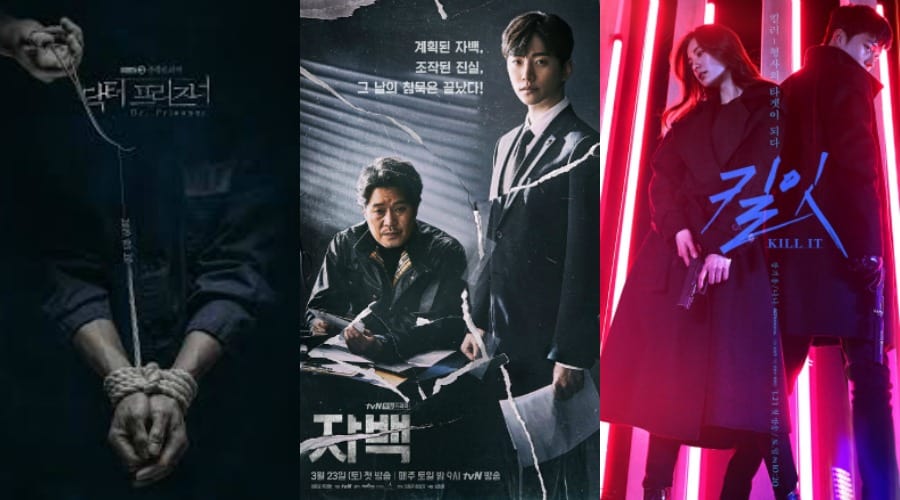
With his humanity restored by the revelation of his flaw, he switched alliances once again without remorse. It’s great that all of them are on the same page with Min Shik’s methods as long as they can share in the spoils of defeating the big enemy.
One of the few comic reliefs in the show is the relationship between Mdm Oh and Prosecutor Jung. It was first revealed that Mdm Oh was a “client” of Yi-je, a woman doing time for planning the murder of her ex-husband’s girlfriend.
It all started with a quarrel between her and Prosecutor Jung, and the fact that Jung is essentially a tsundere didn’t matter since the rest is history. The show’s emotional aspect and the characters’ emotional relationships with one another is the one area I wish it had delved into more deeply.
For instance, it would have been great if Na Yi-Je was able to gain the respect of both the guards and the inmates. I wish he had been more open and honest and let his genuine good nature show in the little things.
He did every day when he wasn’t trying to achieve his objective. The story continued speeding forward from beginning to finish, however, so there wasn’t much time for character or setting development.

